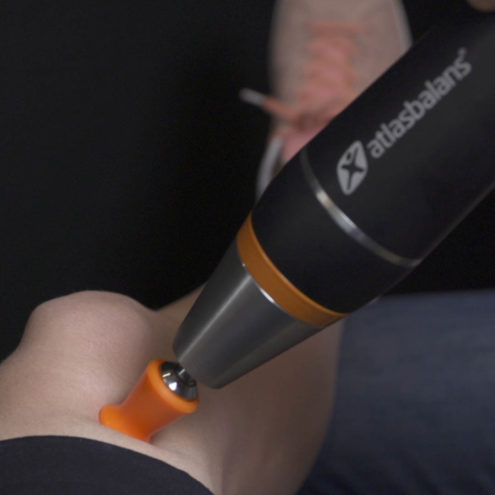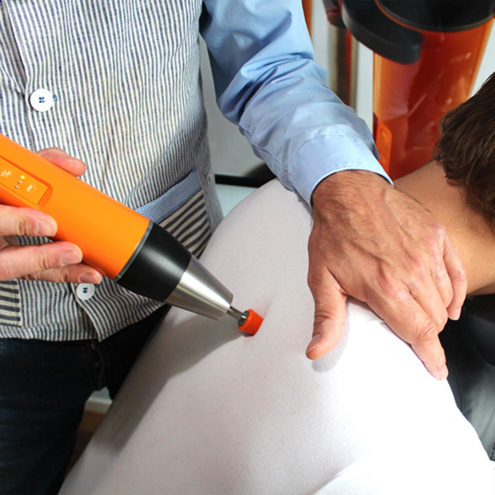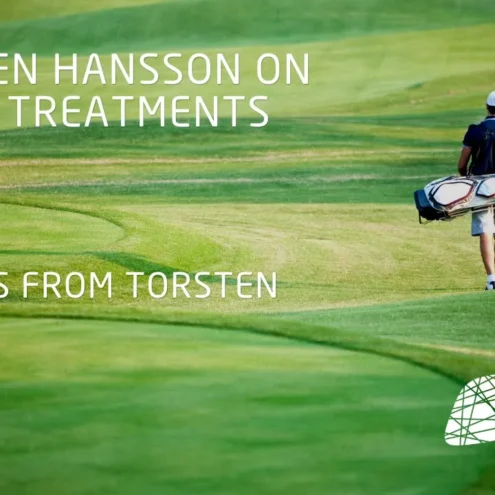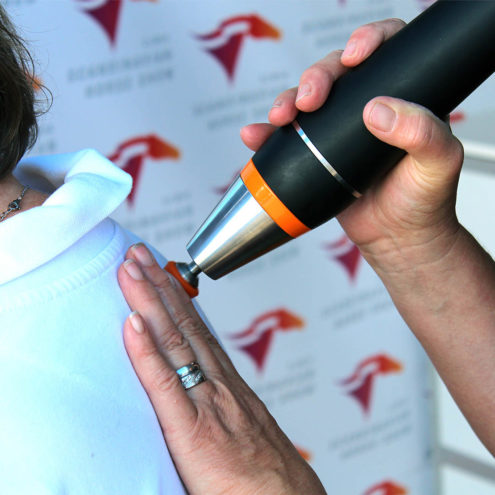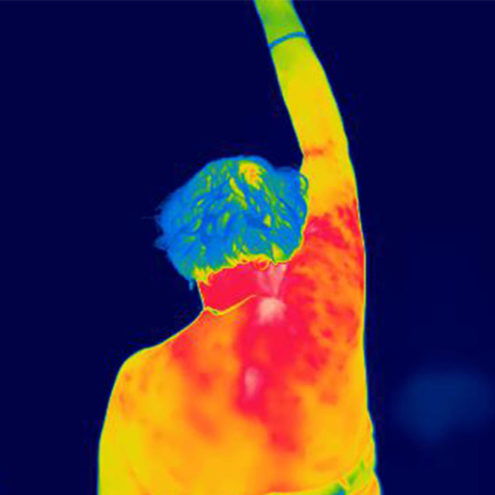Clenched jaws

What are clenched jaws?
Clenched jaw is a condition where the muscles around the jaw become tight and sore. This can cause pain, discomfort and can affect your ability to perform daily activities such as eating and speaking. Jaw tension is a common problem that can affect people of all ages and can have a range of causes and symptoms.
Definition and causes
Clenched jaw is defined as a condition where the muscles in and around the jaw become tight and sore. This can lead to pain that radiates to the face, neck, and sometimes shoulders. The causes of tense jaws are varied and can include:
Stress and anxiety: Psychological stress is one of the most common causes of tense jaws. People tend to tense their jaw muscles when they are stressed or anxious. This tension can happen unconsciously, especially during sleep, which can cause the jaw muscles to become overworked and sore.
Bruxism: Teeth grinding or clenching, especially during the night, can lead to overloading of the jaw muscles. Bruxism is a condition where you grind or clench your teeth unconsciously. This can cause significant tension and pain in the jaw muscles, which can lead to the muscles becoming tired and sore.
Temporomandibular dysfunction (TMD): Temporomandibular dysfunction, or TMD, means that there is a problem with the jaw joint or the muscles around the joint. This can be caused by injury, arthritis, or improper bite.
Poor posture: Poor posture, especially in the neck and shoulders, can affect the muscles around the jaw and lead to tension. When you have poor posture, the muscles in your neck and upper back can become strained, which can affect the muscles in your jaw and lead to pain and tension.
Overuse: Chewing gum or eating hard foods can also contribute to jaw tension. Excessive use of the jaw muscles can cause them to become tired and sore, which can result in tension and pain.
Symptoms and diagnosis
Common signs and diagnostic methods
The symptoms of tense jaws can vary in intensity and may include:
Pain: A constant, aching pain in the jaw, face, neck or ears. The pain can be mild to severe and may be intermittent or constant.
Locked jaw: Difficulty opening or closing the mouth fully. This may be a sign that the jaw muscles are too tight or that there is a problem with the jaw joint.
Cracking or clicking sounds: sounds made by the jaw joint when opening or closing the mouth. This can be a sign that the jaw joint is not working properly.
Dental problems: worn or damaged teeth due to bruxism. This can lead to toothache and other dental problems.
To diagnose tense jaws, a dentist or doctor may perform a physical examination of the jaw and face. They may also ask for an X-ray, MRI or CT scan to get a clearer picture of the condition of the jaw joints and muscles. These diagnostic methods can help identify any underlying problems that may be causing jaw tension.
Difficulty gaping and eating
If the tension in the jaw is severe, it can lead to problems opening the mouth fully, making it difficult to eat and speak. The fascia then risks affecting other parts of the head and neck by spreading tension, which can further complicate the situation by limiting head mobility.
Other related symptoms such as headaches and tinnitus
In addition to direct pain in the jaw, tension can lead to secondary symptoms such as headaches, neck pain and even tinnitus. These symptoms are often linked to how the fascia connecting these areas handles and transmits tension through the body.
Treatment and self-care
Therapy Options and Self-Care Tips
The treatment for tense jaws depends on the cause and severity of the symptoms. Common treatment options include:
Medication: Painkillers, muscle relaxants or anti-inflammatory drugs may be used to reduce pain and inflammation. Medications can also be used to help relax the muscles and reduce tension in the jaw.
Physiotherapy: Specific exercises can help to strengthen and stretch the jaw muscles. Physiotherapy can also include massage and other techniques to relieve pain and tension in the jaw muscles.
Bed rails: Splints used at night can prevent teeth grinding and protect teeth. Bed rails can also help reduce tension in the jaw muscles by keeping the jaw in a more relaxed position.
Stress management: Techniques such as yoga, meditation and deep breathing can reduce stress and therefore also reduce jaw tension. Managing stress can help reduce tension in the jaw muscles and prevent future problems.
Heat or cold therapy: Applying heat or cold to the jaw can help relieve pain and reduce muscle tension. Heat can help relax the muscles, while cold can reduce inflammation and pain.
Self-care tips include avoiding chewing gum, eating soft foods and avoiding excessive gaping. Being aware of when you tense your jaw muscles and trying to relax can also help reduce tension.
Preventive measures
Tips to prevent tense jaws
Preventing tense jaws involves identifying and addressing the triggering factors. Some tips include:
Managing stress: Regularly practicing relaxation and stress management exercises can prevent tension in the jaw muscles. Taking breaks, exercising, or talking to someone can help reduce tension in the jaw muscles.
Avoid overexertion: Limit the time you spend chewing gum or eating hard foods. Avoiding excessive use of the jaw muscles can help prevent them from becoming overworked and sore.
Maintain good posture: Make sure you have good posture, especially when working at a computer or driving a car. Good posture can help reduce tension in the neck and upper back, which can affect the jaw muscles.
Regular check-ups: Visit your dentist regularly to detect and treat problems early. Regular dental visits can help identify problems such as bruxism or TMD before they become serious.
When should you seek medical help?
Indications for seeking professional care
If you experience persistent pain, difficulty opening or closing your mouth, or if your symptoms are affecting your quality of life, you should seek medical help. A specialist can help diagnose and treat your condition effectively. Signs that you should seek medical help include:
Persistent pain: If the pain in your jaw doesn’t go away or gets worse, it could be a sign of a more serious problem that needs to be treated.
Difficulty opening or closing your mouth: If you have difficulty opening or closing your mouth fully, it could be a sign of a problem with your jaw joint or muscles that needs to be treated.
Symptoms that affect your quality of life: If the symptoms of tense jaws affect your ability to perform daily activities, such as eating or speaking, you should seek medical help.
How we can help you
By understanding the different causes and symptoms of inflammation in the jaw, Fascia Clinics can offer targeted fascia treatments that address both the immediate symptoms and the underlying causes.
Fascia is the network of connective tissue that binds and permeates everything in our body. All cells, tissues (even bone), muscles and organs contain fascia.
At FasciaClinics, we take a holistic approach to treating temporal pain. Our team of therapists use fascia therapy to relieve tension and pain. Fascia treatment is a type of wellness treatment that focuses on releasing tension and adhesions in the fascia and increasing its flow. By reducing pressure and increasing circulation, cell membranes can more easily absorb nutrients and release waste products. In this way, fascia treatment can promote healing of the area. The treatment is pleasantly relaxing and painless. It gets the whole body flowing and helps you balance your posture so that the body is evenly loaded. Tension in the jaw, neck and shoulders is reduced, relieving pain.
During a visit, we analyze the whole body to see where compensations and imbalances are and how they have spread. If there is an imbalance in the body, there is a risk that they will spread and affect other structures. That’s why it’s very important to seek help quickly as soon as you experience any symptoms.
By integrating fascia treatment and understanding how the fascia is affected, we can offer a more comprehensive and effective treatment for those suffering from tense jaws. If you are experiencing any of the above symptoms, it is recommended that you seek professional medical advice to obtain a proper diagnosis and treatment plan.
Contact us today to get the help you need and start your journey towards a pain-free life. We are here to help you regain control of your health and improve your quality of life.
 Search
Search







